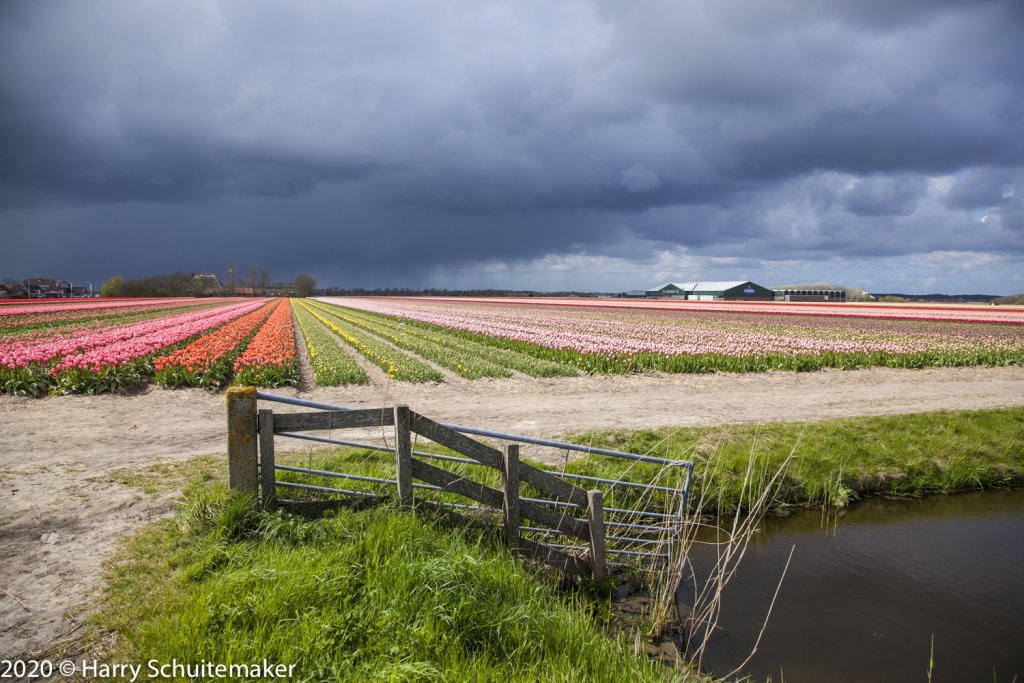Annual control of wastewater from bulb growers
Growers of flower bulbs are allowed by the Board for the Authorization of Plant Protection Products (Ctgb) to use plant protection products for their crops. What is not allowed, however, is careless handling of wastewater. This is because agents that end up in the surface water disrupt the water quality and thus the living environment. Therefore, this fall our supervisors are checking 150 companies for wastewater discharges after treatment of flower bulbs. In addition to these annually scheduled inspections, we monitor through surveillances throughout the year.
Plant protection products that control diseases and fungi in crops can affect ditch life. Therefore, it is important that operators handle crop protection products with care. Pesticides can end up in surface water through runoff from disinfection equipment, insufficiently low-drift nozzles and technology, or through percolate water from pore mounds (drainage from residual waste from bulb cultivation) flowing into the ditch. This wastewater contains residues of nutrients and pesticides. The government is constantly reviewing the effectiveness of measures, including those in the Decree on activities in the living environment, which includes Requirements to protect surface water from plant protection products. If the water quality in ditches lags behind, this can have consequences for the cultivation-free zone (space from the edge of the slope of the ditch where no crops may be grown) and the admission of pesticides.
Proper use and measures
It is important that no runoff into surface water can occur during crop treatment. Measures to prevent this are: protect the disinfection installation from rain, cover porrie heaps and boxes that have been in contact with disinfectant liquid against mixing with rainwater and maintain a sufficiently wide cultivation-free zone when planting. For a number of crop protection products, the Statutory Use Regulations include a wider spray-free zone than in the Decree on activities in the living environment. The strictest condition applies. The grower must take this into account when planting crops. It is also mandatory to use registered drift-reducing nozzles on the field sprayer. This way, less crop protection products will end up in the water. In addition, even with a backpack sprayer, most pesticides may not be applied in the ditch slope.
Do you have questions about measures for open cultivation? Please contact the supervisors at handhaver@hhnk.nl or via the general telephone number 072-582 8282. For more information, please also refer to the Living Environment Information Point: Open cultivation - Water Helpdesk.
